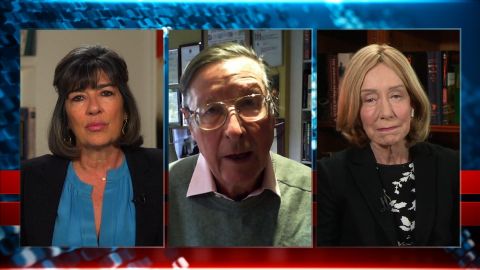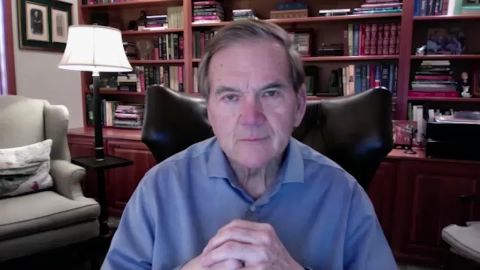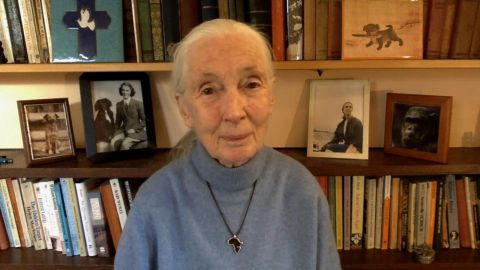Read Transcript EXPAND
CHRISTIANE AMANPOUR: So, let me just ask you first both first, just quickly, to reflect on where we are today on this anniversary and the fact that it cannot be marked perhaps as it was intended. Doris, all the way over there from the United States, I know it wasn’t the end of the war for the U.S., but what does it moon for the U.S.?
DORIS KEARNS GOODWIN, PRESIDENTIAL HISTORIAN: I think what it still means is the remembrance of a time when we had two leaders, FDR and Churchill together, who were able to end that war on this day at that time, 75 years ago, at least in Europe. What makes me sad about it is thinking that FDR and Churchill had planned to be together for this moment and, of course, FDR died just weeks before. There was going to be a huge celebration, a parade. He was going to the king and queen. It seems like FDR was happier that he had been in months because his health was already undone. So, I keep thinking about the two of them on this day, what remarkable leaders they were and that countries in both Britain and the United States who responded magnificently to the challenge. It makes you sad because we wish we had that today.
AMANPOUR: Well, leads me to you, Max, of course, you know, the countries did respond so amazingly well and rose to this challenge. And even though the whole war wouldn’t end until the victory over Japan much later, this was a big, big deal. What do you make of the muted celebrations? I mean, the queen speaks and there’s, you know, virtual sort of joining in of various celebrations. But does it matter that the world, Europe has not been able to mark this on a big, big scale?
MAX HASTINGS, HISTORIAN AND JOURNALIST: Of course, it matters because we are facing what is probably the most serious crisis to strike our society since 1945. We must keep a sense of proportion but this is not the Second World War. If you look at the numbers of people who have died, thank goodness, they’re still vastly smaller than they were in the same. Well, do remember the Russians, they lost 27 million people in the Second World War. The war went on for six years but millions of young men and women were conscripted into the services. People’s lives were wrenched out of (INAUDIBLE). Now, whatever happens with this current crisis, I don’t think, thank goodness, we’re headed for a terrible economic ordeal, more serious than anything we have seen. But this is not still a Second World War. Churchill, Churchill by 1945, he was in many ways a very unhappy man that he was very acutely aware that the Russians were taking over Eastern Europe when after fighting a war to liberate Eastern Europe from Nazi subjection that suddenly you find that Stalin is taking over the empire.
About This Episode EXPAND
Christiane Amanpour speaks with Doris Kearns Goodwin & Max Hastings about how modern presidents and prime ministers measuring up to history’s wartime leaders. She also speaks with Jane Goodall about how environmental degradation can increase the likelihood of pandemics. Michel Martin speaks with former governor of Pennsylvania Tom Ridge about the need for self-sacrifice in a time of crisis.
LEARN MORE


